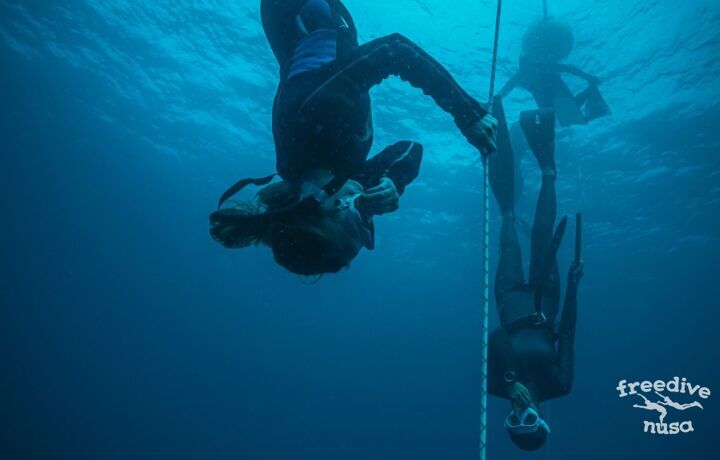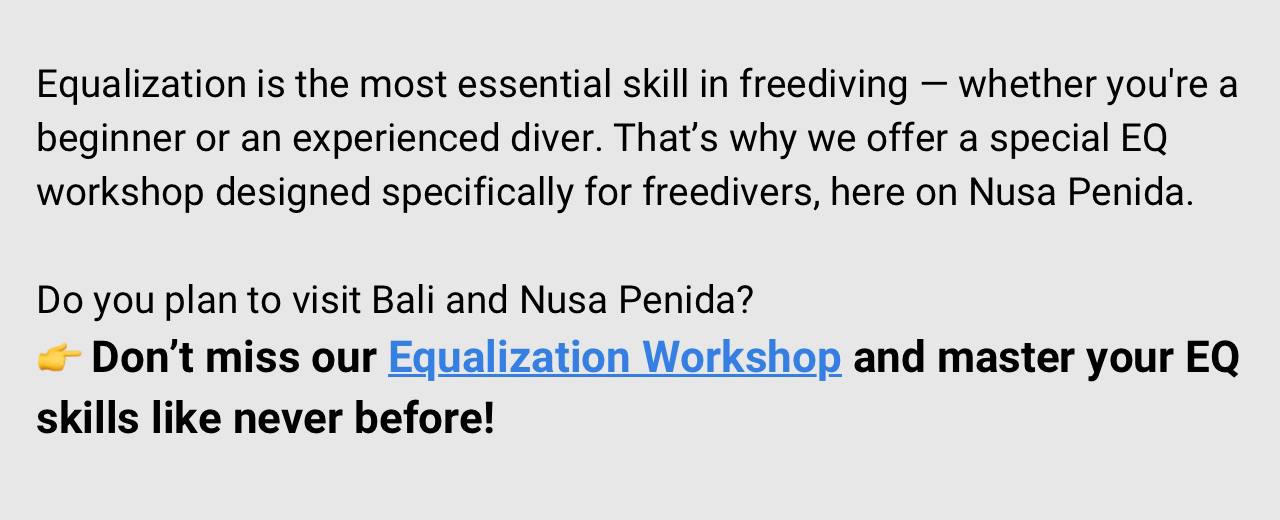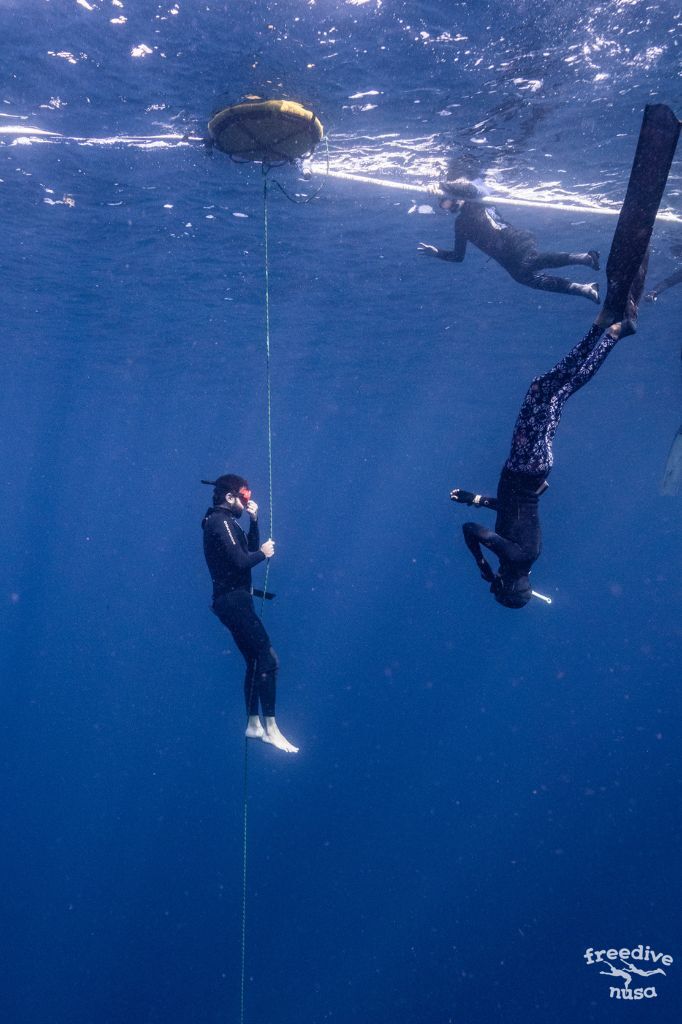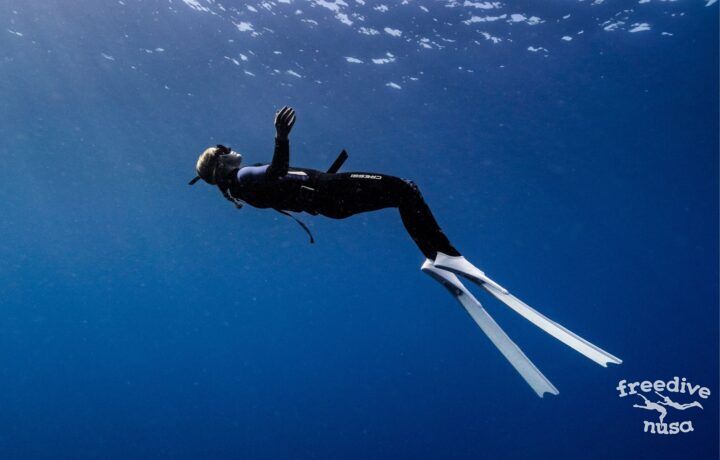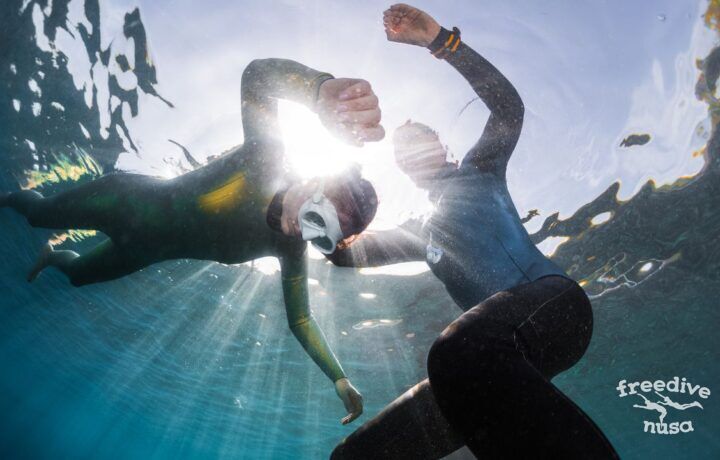Good equalization. These two magic words mean a lot in the freediving world, and almost all small talks in the community are about equalization in diving. Some people can equalize freely and easily from the very beginning of their studies, while for others, it can take years of practice to achieve it.
What we can say with 100% of confidence is that everyone experiences troubles with equalization at some point in their freediving journey. The Frenzel and especially mouthfill techniques are definitely not something we use in our our daily life. That’s why it’s a normal thing that we need some time to understand which muscles we need to use and train their power and coordination.
The purpose of this article is to review the most common causes of equalization problems at the depth of 35 meters or shallower (Frenzel area) and provide recommendations that can help you to overcome the problem and go deeper.
1. Incorrect Technique
Problem
Incorrect technique is a common problem for beginners. There is a lot of new information about the muscles we even weren’t aware of before our basic freediving course: your instructor asks you to close your vocal folds (where are they), use air from the oral cavity (omg), place a tip of your tongue in different positions to make locks, push a root of your tongue up remaining soft palate in neutral position (the hardest part), be head down (!) and the funniest thing is you need to be relaxed at the same time (laugh from Dr. Evil).
Solution
Practice your equalization skills over and over again. Do dry equalization exercises with the EQ tool, attend equalization workshops, try online courses or work personally with a coach – there are many options available for training. Over time, you’ll develop the muscle strengths and coordination needed to be really relaxed while your body is performing all this equalization job in the automotive mode.
2. Relaxation and Body Position
Problem
Tension in your body while freediving will lead to multiple problems and one of them is equalization. Tension can be caused for a variety of reasons: stress, muscle spasm, not enough resting on the surface, tension in the neck after sitting near the computer for a long time, an uncomfortable wetsuit that doesn’t fit you properly, cold water, or the wrong body position with a raised head, fear, etc.
Solution
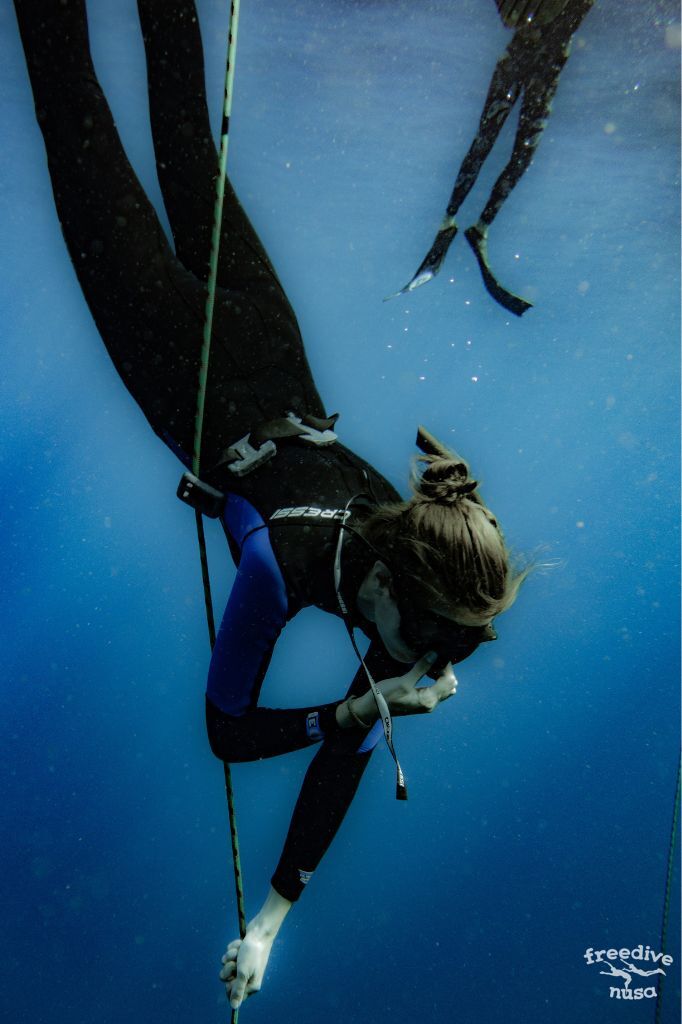 How to check if you have a raised head while underwater? It’s easy: if you can see where you are going, then your head is raised. Tuck your head in and imagine that you need to hold a small apple between your chin and neck. When your head is in line with the rest of the body, it reduces pressure on your eustachian tubes and makes equalizing much easier. Maintain your surface intervals. Change your wetsuit for the most comfortable one and wear the proper wetsuit for the given water temperature. Make a massage or go to an osteopath if you have muscle tension, especially in the neck. Practice relaxation techniques, mindfulness, and meditation during the day and before your dives, and last but not least, try to get enough sleep.
How to check if you have a raised head while underwater? It’s easy: if you can see where you are going, then your head is raised. Tuck your head in and imagine that you need to hold a small apple between your chin and neck. When your head is in line with the rest of the body, it reduces pressure on your eustachian tubes and makes equalizing much easier. Maintain your surface intervals. Change your wetsuit for the most comfortable one and wear the proper wetsuit for the given water temperature. Make a massage or go to an osteopath if you have muscle tension, especially in the neck. Practice relaxation techniques, mindfulness, and meditation during the day and before your dives, and last but not least, try to get enough sleep.3. Stress and Anxiety
Problem
Being immersed in a 3D world head down causes a lot of happiness and delight for some, while at the same time, for people who are afraid of the water, the same environment may produce undesirable anxiety and fear. It’s impossible to stay relaxed when you’re anxious: you get tense, meaning equalizing your ears will also be affected.
Solution
If you experience any anxiety while being in the water, don’t hesitate to give yourself time to get used to the new environment. Divide your attempts into more stages and go step by step. You can try to hang on the line under the water, getting used to it. Also, try descending in more usual position feet first. Only when you feel that you have managed to relax and the anxiety reduces, proceed to dive head down.
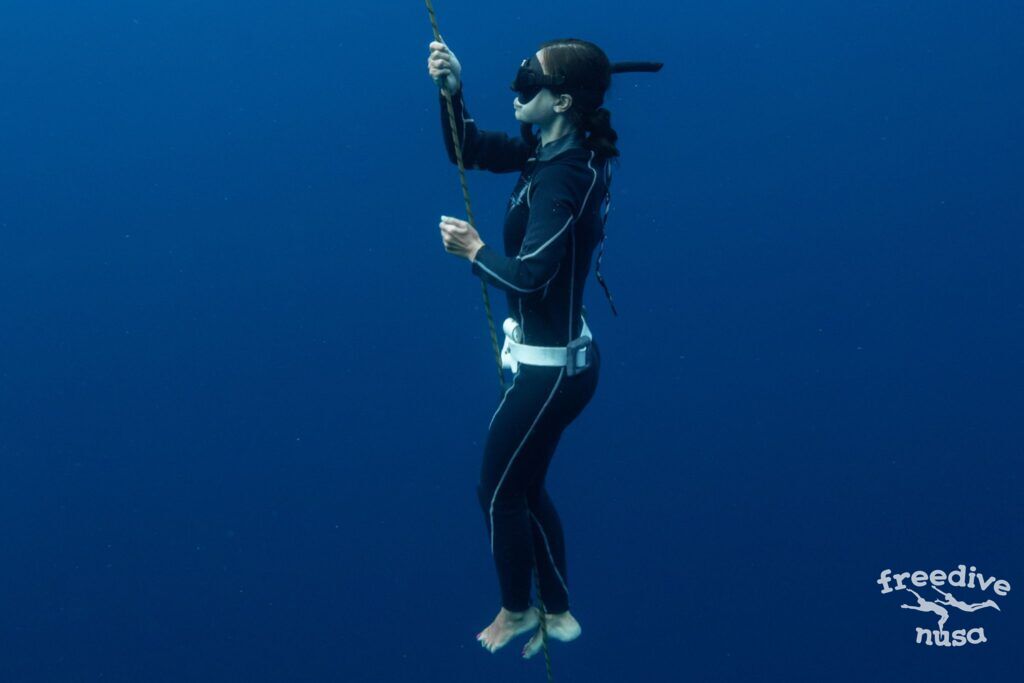
4. Infrequent Equalization and Waiting For The Discomfort
Problem
When you equalize rarely or infrequently, pressure builds up to a point where you need a stronger equalization to release it. Forceful equalization may cause eardrum barotrauma and hinder relaxation.
Solution
Never wait for any discomfort or pain to start the equalization. Smooth, soft, and frequent equalization is the key to success. There is no limit to how often you can equalize while you descend. Do it in the most frequent and relaxed manner ever, always in advance.
5. Fast Descent
Problem
Descending too quickly will play a bad role in your equalization. If your equalization and adaptive mechanisms can’t keep up with the speed of your descent, you’ll definitely feel too much tension in your ears and can either miss the moment of equalization or equalize forcefully (which is not recommended). That, in addition, will create undesirable tension in your body.
Solution
A slower descent will help you to stay relax and avoid forced equalization. Your dives will be much more pleasant, long, and free from equalization issues.
6. Diet and Hydration
Problem
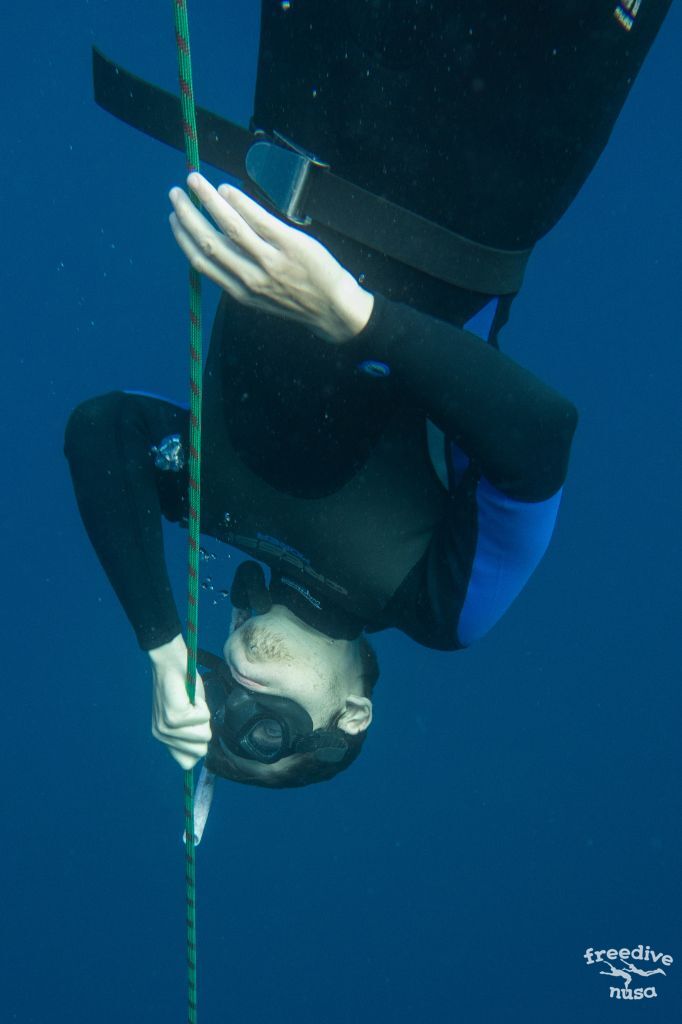 You always need to remember that freediving is a sport that makes your body sweat and lose liquid due to diuresis, which is a result of one of the MDR effects — peripheral vasoconstriction. Without proper hydration, it’s easy to get into a dehydrated state. Dehydration, besides other negative effects, makes the mucus in nasal cavities more sticky, which also interferes with pressure equalization.
You always need to remember that freediving is a sport that makes your body sweat and lose liquid due to diuresis, which is a result of one of the MDR effects — peripheral vasoconstriction. Without proper hydration, it’s easy to get into a dehydrated state. Dehydration, besides other negative effects, makes the mucus in nasal cavities more sticky, which also interferes with pressure equalization.Speaking of nutrition, some food may affect producing more mucus in the body, which can lead to blockage of the Eustachian tube and difficulties in equalization.
Solution
Keep track of water balance in your body. Drink the proper amount of water during the day, and always take a bottle of water on the buoy. Diet recommendations can be tricker because the same nutrition recommendation doesn’t work for everyone. Listen to your body, eat food that you know will be good for you, and try to avoid extra mucus producers (trans fat, dairy, junk food, sweets, etc.) before your diving sessions.
7. Sickness and Physiological Issues
Problem
Diving when you’re sick can be a disaster. Besides the fact that you can’t relax and your body demands rest (which already takes all of the fun from the process), there’s a risk of getting a barotrauma (because of mucus blockage and forceful attempts to equalize) or reverse block (because of using decongestant).
Some people can hear crackling, hissing, or squeaking sounds and have difficulties with equalization without being sick or allergic and still having proper Frenzel technique. In rare cases, there may be some physiological issues such as a deviation of construction of Eustachian tubes, septum, or other blockages of nasal cavities.
Solution
If you hear strange sounds in your sinuses and can’t equalize the pressure — don’t force yourself. Cheating with decongestants may cause reverse blocking, so don’t mix the medicine with training. You can come back to freediving when you fully recover. We recommend you visit an ENT doctor to check the condition of your nasal cavities and ears. In case you have chronic allergies, it’s also better to talk with your therapist about the options. Generally, avoid air conditioning and exposing your ears to the wind after being in the water. Wash your ears with fresh water after freediving in the sea or the pool.
Summary
We just gave an insight into how to equalise ear pressure and covered the most common causes of equalization problems. They can occur to both beginners and experienced freedivers. If you encounter any of them, you need to know that you are not alone. Just don’t force your body, be patient, and take care of yourself. With self-love and systematic training, you’ll reach your goal and master all the diving equalization techniques.
Always enjoy your time in the water!
May the equalization be with you!

